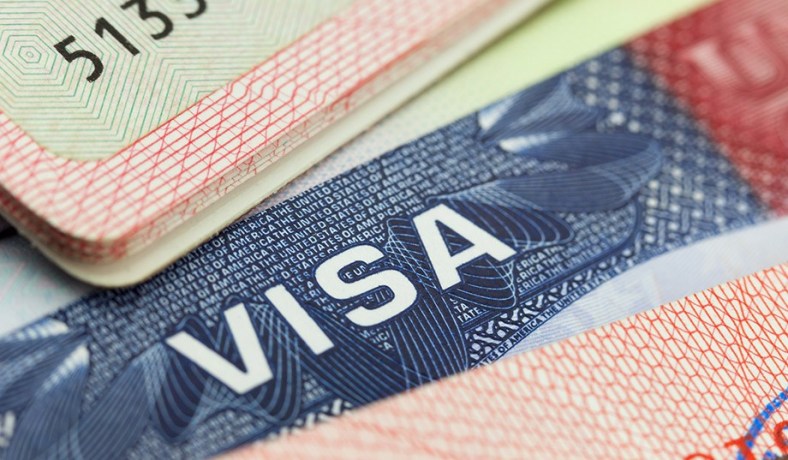Why We Need State‐Based Immigration Visas
 Reforming the immigration visa system is crucial for the future of the United States. Rep. John Curtis (R-Utah), backed by Utah's Republican Gov. Gary Herbert, just introduced a bill to create a state-based visa system. Based on an earlier version introduced by Sen. Ron Johnson (R-Wisc.) in 2017, Curtis' bill adopts a major component of the Canadian immigration system: visas sponsored by individual states, rather than the federal government.
Reforming the immigration visa system is crucial for the future of the United States. Rep. John Curtis (R-Utah), backed by Utah's Republican Gov. Gary Herbert, just introduced a bill to create a state-based visa system. Based on an earlier version introduced by Sen. Ron Johnson (R-Wisc.) in 2017, Curtis' bill adopts a major component of the Canadian immigration system: visas sponsored by individual states, rather than the federal government.
Under the legislation, the federal government maintains control over admissions, security checks and other necessary criteria while the state governments gain power to select individual migrants and regulate their activity within the state. Each state would get an average of 10,000 visas a year, 5,000 guaranteed for each state and an additional number assigned based on population.
Under this bill, states could create visas that don't exist under the federal system. California might create a state visa for high-tech entrepreneurs, Wisconsin would create one for dairy workers, and Utah could attract tourism entrepreneurs. Texas may want oil-rig workers and Michigan could attract real-estate developers for Detroit.
Under the proposal, how states decide whom to sponsor for a visa is left entirely up to them, but they would likely seek input from stakeholders such as labor unions, businesses, community groups, city governments, farmers and others. States would decide how long the visa lasts, how often it would be renewed, and these visas wouldn't subtract from the number of visas available through the federal immigration system.
Curtis said that “neighboring states share commonalities that don’t end at lines on a map." The state-based visa bill explicitly allows states to sign compacts with each other to share state-sponsored migrants. For example, the western states of Montana, Idaho, Wyoming, Utah, Colorado, New Mexico and Arizona could all sign a compact to allow state-sponsored farmworkers to move with seasonal crops. Importantly, no state-sponsored visa worker can be tied to a single employer.
There is a long history of demand for a state-based visa. Colorado passed a bill to expand agricultural visas in 2008. In 2011, Utah passed a bill creating a state-sponsored guest worker visa program and immediately asked the federal government for permission to run it. In 2015, Texas and California state legislators introduced numerous bills to create different state-level guest worker programs. The California bill passed its state Assembly and stalled in the Senate.
Many other state legislatures have passed bills, resolution and introduced legislation to create a state-based visa program. But the federal government never granted permission and there was no law that even gave them the authority to do so. Johnson’s 2017 bill attempted to create that authority, and Curtis is now picking up that baton.
Although American states have been asking for state-based visas for over a decade, immigration systems in Canada and Australia provided much inspiration. About 96% of migrants who entered on the Canadian provincial-based program in Manitoba, British Columbia, Alberta and Saskatchewan were employed within a year. They filled important niches in the labor market that made Canada’s program an integral part of its merit-based immigration system.
The state-based visa bill, crucially, incentivizes states, migrants and employers to enforce and follow federal immigration law by providing sticks and plenty of carrots. The number of visas is automatically cut for each state where enough state-sponsored migrants break the visa rules. Additionally, migrants or their employers would have to pay bonds that they would forfeit if they break the visa rules. Individual states who can’t follow the rules are eventually barred until they figure out how to comply.
But if a state follows the rules, the number of visas allocated to it increases by 10% a year. A carrot-and-stick approach will incentivize states to create new effective enforcement regimes and they will be judged on their effectiveness.
Nationwide one-size-fits-all migration laws aren't working. States need more workers to fill particular economic niches that the federal government ignores. Curtis' bill lets states try their hand at regulating economic visas under federal supervision. Federalism currently allows states to experiment with education, welfare and drug policies with great success. It's time to let them experiment with legal migration too.








